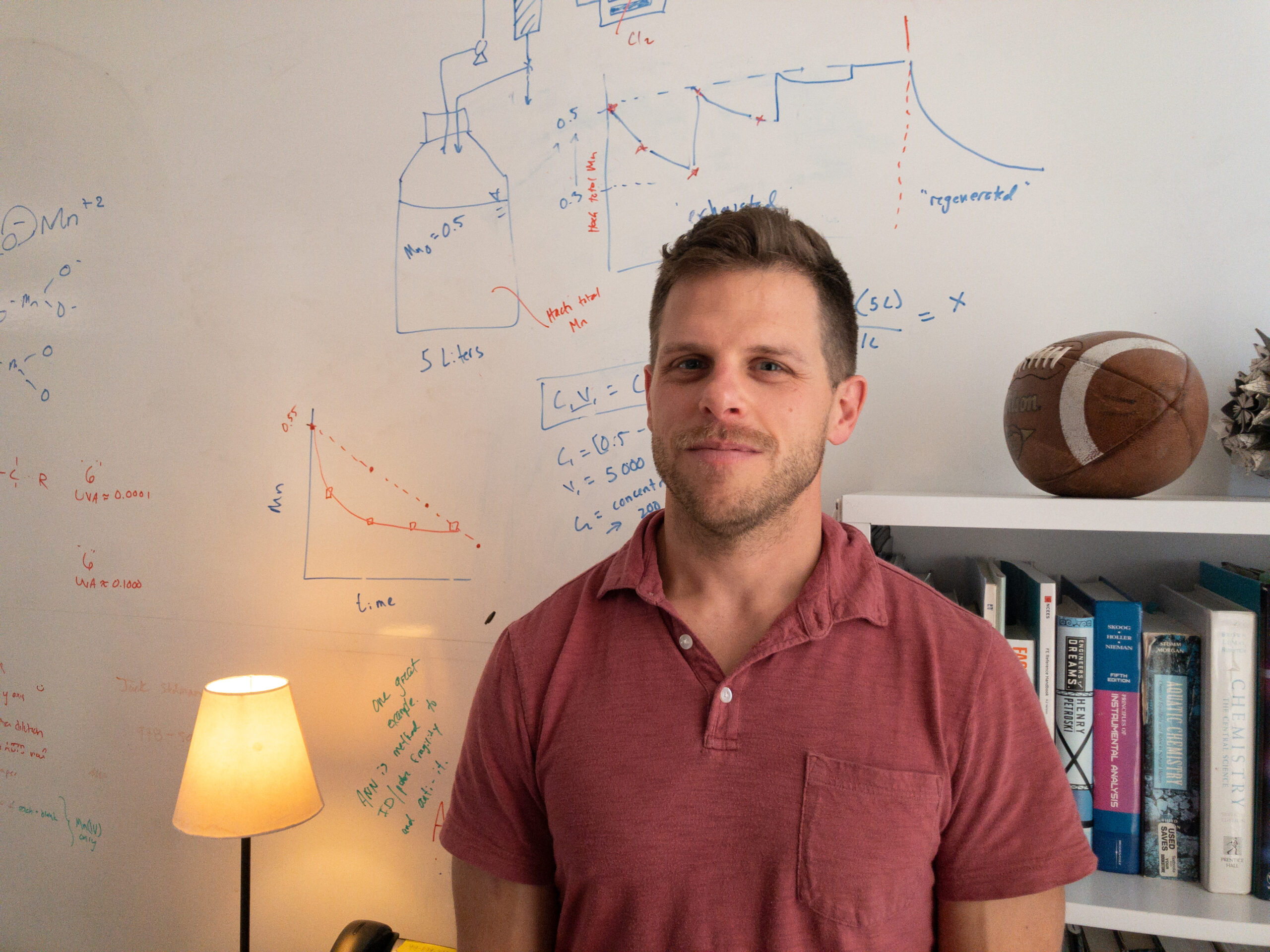Engineers Without Borders URI aims to build foundation
A chapter of Engineers Without Borders chapter is in the process of being started at URI this semester. PHOTO CREDIT: Eddie Melfi | Staff Photographer
The University of Rhode Island has not had an Engineers Without Borders chapter until its first meeting earlier this year, according to Joseph Goodwill, unlike other nearby flagship public schools.
Technically, the organization still does not currently exist in the eyes of both the University and the national chapter of Engineers Without Borders. However, URI’s Engineers Without Borders, which has held two meetings thus far, has set big goals for the future within its first semester of operations.
Engineers Without Borders aims to provide communities worldwide with crucial infrastructure to help local residents receive resources, including water and electricity, according to their mission statement. Currently, the national organization is celebrating its twenty-year anniversary.
Goodwill, the organization’s faculty advisor and an assistant professor of civil and environmental engineering, has previous experience as a member of the organization from when he was a graduate student at the University of Massachusetts, Amherst.
Helping to start a URI chapter, he said, was on his “maybe someday” list of things to do while at the University since his hiring. But, it wasn’t until meeting with Anthony Marchese, dean of the College of Engineering, shortly after he was hired, that Goodwill decided to move forward with bringing the organization to URI.
“He gave it a full-throated endorsement and said, ‘Please do this if you feel like you’re up to it,’” Goodwill said. “It’s great to have that kind of administrative support. I think it’s essential before trying to launch any new organization.”
Goodwill worked primarily with two students — fourth-year Carrie Ellis, a civil engineering and Spanish major with minors in environmental engineering and mathematics, and Civil & Environmental Engineering Ph.D. candidate Kayla Kurtz — to help him with the process of creating the organization. Ellis met with Goodwill throughout the Spring 2022 semester and throughout the summer to plan out the organization’s meetings and begin the paperwork process for getting the chapter recognized.
According to Goodwill, the first meeting of the group, which was planned as an interest meeting, ended up with a larger attendance than he had anticipated, and the room he reserved for the meeting could not fit all of the students.
“When you’re starting a group, there’s always a fear in the back of your mind that you’re only going to have one student show up,” Ellis said. “But the word got out, and we had 40 or so students come, and there was a lot of excitement in the room.
In the organization’s most recent meeting, Ellis was elected the organization’s first-ever president. Following her election, the members also voted to fill the roles of the rest of the club’s officers.
Before moving forward, though, the organization needs to gain recognition, both with Engineers Without Borders’ national chapter and with URI’s Student Senate. The deadline for the former, according to Ellis, is in January, while the latter will likely be finished later in the spring semester.
“There’s a pretty comprehensive process to fill out to become an EWB active chapter,” Ellis said. “We’re right now delegating tasks to our newly elected officers to divide and conquer all of the tasks that need to be completed for that.”
Ellis’s main goals for her tenure as president are to create the foundation for the future of the organization, which would include international work building structures including wells, walking bridges and dams.
Goodwill and Ellis said that the organization isn’t open to only engineers; students of any major can sign up and attend meetings, no matter their familiarity with engineering.
“The engineering part of Engineers Without Borders is directly involved with improving others’ lives, but so many other things are essential to make that improvement happen,” Goodwill said. “Even if you’re not here doing engineering work, you can absolutely have a key role to play.”
Among those improvements, Goodwill and Ellis noted, will be monitoring previous projects that Engineers Without Borders has worked on once the organization reaches a point where it can send members to communities in need of civil infrastructure around the world.
While it will take a while to get to that point, Goodwill said that there’s still something special about being the people to build a foundation for the organization’s future work.
“I told [our seniors] ‘You will forever own a piece of this,’” Goodwill said. “Part of your legacy will be being able to say, ‘I was here when the Engineers Without Borders chapter was just a group of people in a room that was too small, and we didn’t exist in the eyes of the University or organization.’ Ten years from now, when they come back and see a more mature organization doing a host of projects, they should feel a sense of pride as someone who was on the ground floor of that.”





